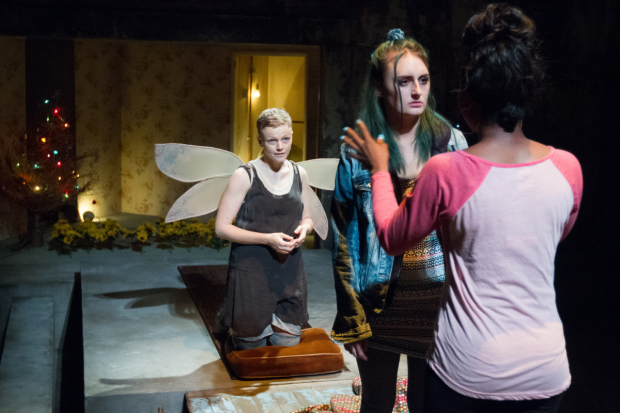Matt Trueman: It's not just bad work that puts audiences off
Many factors can potentially alienate theatregoers

© Jonathan Keenan
Received wisdom has it that it doesn't take much to put people off from attending the theatre.
Yes, West End attendances are growing year on year, there are early queues for day seats and returns, and, from where I'm sat, British theatre seems in pretty rude health. Health all the more remarkable given all the cuts to arts funding delivered in the name of, ugh, austerity.
Of course, I'm seeing this picture of health from a deeply privileged point of view – as someone who has been encouraged to build a theatregoing habit, as someone who knows where to go and how theatres work, and, over and above, as a critic with all the free tickets and interval drinks that entails.
Not everyone has anything like that relationship to the theatre though and attending can feel like an effort – especially given the ease and scope of a Netflix subscription, let alone the perceptions of theatre as an elitist art-form. In the bid to make it more accessible, theatres need to consider the structures surrounding a show as much as the show itself.
When buildings get this right, it can have a real impact. Two blogs last week really illustrated that. The first, by Lily Einhorn who oversees the Young Vic's Two Boroughs project, talks through its structures for making new audiences feel welcome: offering free first-time tickets to local residents, greeting them (by name) as they arrive and ensuring that they know what to expect.
In the second, Annabel Turpin, artistic director of the ARC in Stockton, explains the success of its Pay What You Can policy, which aims to take the financial risk out of theatregoing. In six months, attendances are up by 58% and income, up by 82% with a big jump in first-time visitors to boot.
It's not just the work onstage that counts towards our experience of the theatre. Everything does. Theatres have to remember that.
But, don't make it any harder for audiences than it already is. There are an infinite number of reasons not to come to the theatre. We don't need another one.
I'm writing this from the 16.55 from Manchester Piccadilly to London Euston. Not, as should have been the case, the 16.35. I missed that train and, were it not for a decent Virgin Rail employee, I'd have been £80 worse off on top of being sweat-soaked from a mad sprint across Manchester.
Why so? Simple. I was seeing The Skriker at the Royal Exchange on Sunday afternoon and, planning ahead, I'd checked the show's running time – 90 minutes, according to the theatre's website – in order to book a train home. Given a 2.30pm start, and allowing for a five minute delay at either end, it should have been down no later than 4.10pm, leaving 25 minutes for a stroll to the station. Plenty of time.
Instead, despite the show's starting on time, I got out of the theatre shortly after 4.25pm. The actual running time stands at 1 hour 50 minutes, leaving about eight minutes to make it to the station, some 15 minutes away.
Grumble, grumble. Grumble, grumble. Well, perhaps. Of course things change in rehearsal, shows swell and subside, and theatre, as a live art-form, is never entirely fixed. Some nights will start late. Others will overrun. All that is absolutely understandable.
However, a week into The Skriker's run and the theatre's website still says the show runs at 90 minutes. There was no notice in the theatre and no mention at the box office. To most, it won't matter. What's 20 minutes, after all?
Well, it's the difference between one train and another. It's a parent sat waiting in the car getting irritable. It's a taxi that gives up and moves on. Booking fees, queues for the loos, overpriced drinks and uninteresting, advert-heavy programmes, not to mention expensive tickets and uncomfortable seats – these are the things that drive audiences away, just as much as a dodgy show or two. This is what gives theatre a bad name.
Please note: This blog has been edited since it was first published












